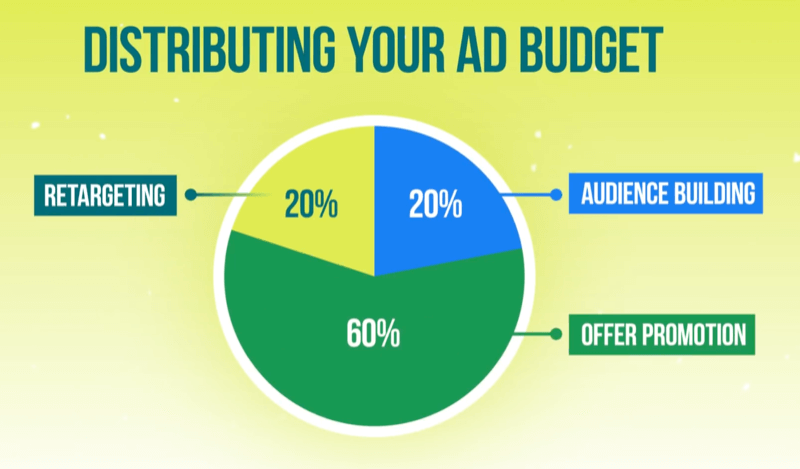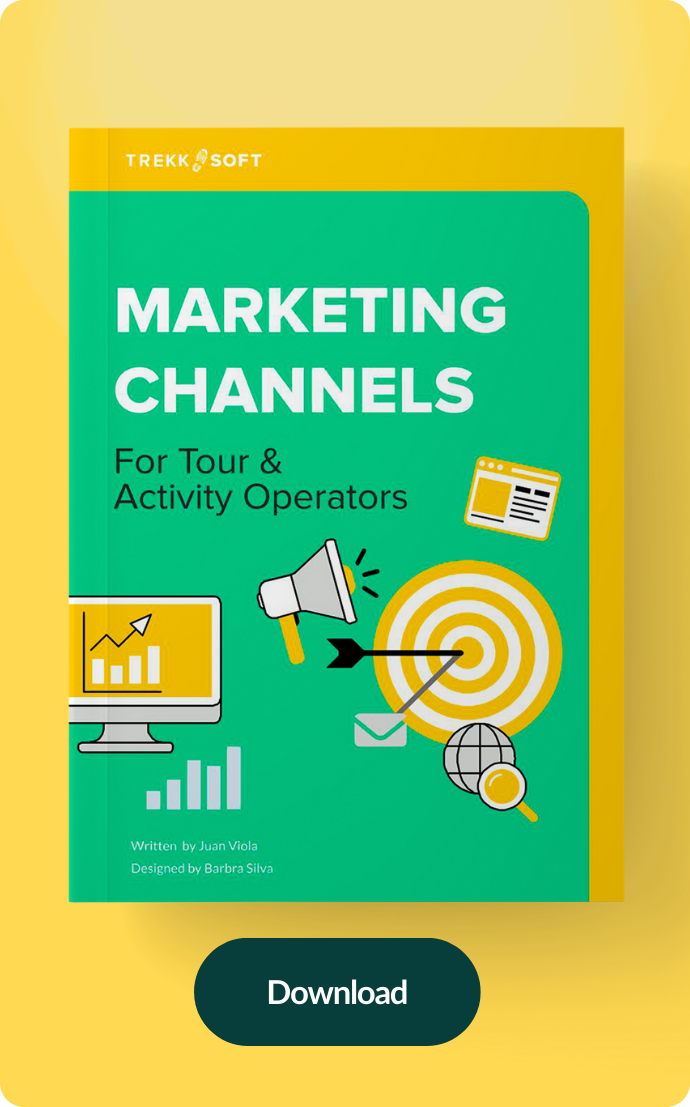This post was published in 2017 and has been updated in 2021 for relevance.
With the high season a few months away, what are you doing to maximise bookings this season? One way you can drive bookings is to run a marketing campaign, a focused effort to promote your tours and activities you offer to prospective customers.
To plan your next marketing campaign, answer these seven questions.
1. What do you want this marketing campaign to achieve?
I find it easier to create a plan when I know I have an objective to achieve. And I'm sure I'm not the only one.
So, what are your business goals for the upcoming season? How many bookings would you like to secure? What's your target average transaction value per booking? Perhaps you want to increase sales by 10% this summer?
Have a good think about your goals for this campaign and don't forget to write them down.
2. Who do you want to attract to your business?
Who is your target market for this campaign? Who are you trying to reach out to? Imagine the people you'd like to take on your next tour. Be specific about the demographic you want to reach and think about their lifestyles and interest.
Write a description of your ideal customer and use this understanding to guide your decisions from here on. Having a clear idea of who you want to speak to will help you craft a marketing campaign that is relevant and appealing to your audience.
Read more: How to understand your customers by creating personas
3. What do you want them to book?
What experiences do you want to promote in this campaign? If this is a seasonal campaign, for example a winter campaign, you should probably promote activities and tours that are best experienced in winter. Also remember to pick experiences that would attract the target audience you highlighted in the previous section.
You can create discount codes for specific customer segments or send vouchers to customers who have already made a booking to encourage them to book another trip with you. Alternatively, you can also create valuable packages that bundle up your tours and allow customers to pick dates and times that best suit their holiday plans.
Whatever your main offer is, make sure it becomes the focal point of your campaign.
4. What’s your main message this season?
"Every marketing campaign should reinforce your brand’s overarching mission, strategy and positioning story. At a more tactical level, all campaign elements and communication outputs must be consistent with your brand, including its voice, tone, look and feel." - Percolate
So, what is the core message of your business and how does campaign strengthen this message?
Here are some elements your campaign's message should cover:
- Your business' core message
- Your brand
- Your offer
- Your call-to-action

5. What's your budget?
How much money have you allocated to this campaign? €100? €2,000? Having a fixed budget can help you determine which marketing channels to use based on expected return on investment.

Your expected return on investment will depend on your customer acquisition costs which depend on your conversion rates and your cost per lead on various marketing channels. According to Social Media Examiner, marketers should spend 20% of their budget on educational and engagement content that helps with audience building. 60% of the ad budget should be spent on promotion while another 20% of the budget should be spent on retargeting efforts.
When thinking about your budget, you should also take into consideration any additional costs you might need to incur, for example, hiring a freelance designer to create promotional assets or hiring an ad agency to help you with paid advertising.
6. How will you reach your target audience?
With a key message locked down, what channels can you use to communicate your key messages? With your target audience in mind, where are you most likely to get their attention?
Depending on the resources you have, you should focus on 3 to 5 channels for each campaign.
Here are some channels you can consider:
- Paid advertising (e.g. Facebook, Instagram, Google AdWords) - With paid advertising, remember to create dedicated landing pages that align with your promotion. For instance, if your ad says "Get 10% off our history tour", make sure the landing page has information about that specific offer.
- Review sites (e.g. TripAdvisor or Google Reviews) - Make sure your contact information is visible and updated. Also remember to get reviews as often as possible so that prospective customers know that you're still open for business.
- Online travel agents (OTAs) and marketplaces (e.g. Musement, TripAdvisor Experiences, Expedia Local Expert, Get Your Guide) - While OTAs are able to bring in high volume of bookings, tour companies should be weary of the commission their paying. A good rule of thumb is to work with 3 to 4 OTAs, while also focusing on your website and other direct sales channels.
- Your own website and blog - Remember that simply creating a blog post or updating your webpages isn't enough. You'll need to promote these pages to draw eyeballs to your website.
- Your social media channels - Most tour companies will have an Facebook and Instagram account. Use these channels to attract potential customers, engage your followers, and promote your offers.
- Email marketing - Email marketing is the most effective way to stay in touch with previous customers and potential customers. Always find ways to capture the email addresses of people who visit your website so that you can stay in touch, build a relationship with them and, in time, have them book a trip with you in the future.
- Media sites (e.g. travel blogs, local news sites, destination companies)
- Offline and in-destination - Don't forget about promoting your tours to people who have already arrived at your destination. Build working relationships with local hotels, hostels and Airbnbs, and offer them a commission for referring guests to your company.
When you've decided what channels to use for this campaign, come up with a list of content pieces that would suit these platforms.
If you would like to promote your tours on Instagram, use high quality photos or videos to capture the attention of these users. If you would like to get featured on travel blogs or media sites like Lonely Planet, start sending them pitches and pictures of your destination. If you'd rather run the campaign on your blog, create a schedule for 4 to 5 pieces of content you'd like to write, and then get to writing, editing, publishing, and promoting it.
7. When are you planning to launch your marketing campaign? And for how long?
Timing is crucial for any marketing campaign.
If you're planning a campaign to encourage more bookings for the next season which is, for example, 3 months away, you should start planning your campaign now. Give yourself as much time as possible to plan your campaign, execute it and make changes along the way.
Remember that it takes time for your customers to do their research and narrow down their options, before finally making a booking with a tour company of their choice.
You can also time your marketing campaigns to coincide with a special event, a seasonal holiday or a Hallmark holiday like Mother's Day or Valentine's Day.
Whenever you plan to launch your campaign, remember to give yourself enough time to research and prepare your campaign content before launch.
8. How will you execute this plan?
Now that you've got the details of the campaign down, how do you plan to execute it? Do you have the resources (i.e. time, money and knowledge) to carry it out?
If you work on your own, what tools can you use to help you out? If you work in a team, who can you assign this task to? Who is best fit for this job?
Do your research to come up with rough estimates for this campaign. Consider the number of hours this campaign will take up, your marketing budget (for both online and offline advertising), and the human resources that this will require.
Finally, create a timeline for your campaign. List down all the actions you need to take and add deadlines for each item. Remember to build in a bit of wriggle room (1 or 2 weeks) to accommodate any unforeseen hurdles.
In conclusion
Remember to give yourself ample time to plan and execute your campaign. Once you've launched your campaign, keep an eye on its performance and don't be afraid to experiment with different content to see what draws the most engagement and converts curious browsers into paid bookings.
Lastly, when your campaign is done, don't forget to measure your performance. Did you meet your objectives? Why or why not? What can you do to push up bookings for next season? What were some key lessons you learnt? I find writing these things down and reviewing them to be really helpful before I kick off my next campaign.
Read more: 5 indicators of growth for your tour and activity business
Are you ready to put these tools into practice? Download our marketing campaign worksheet:





